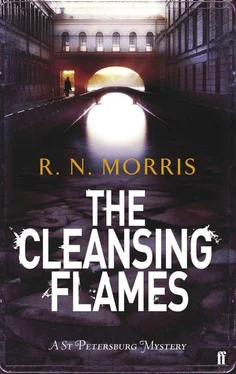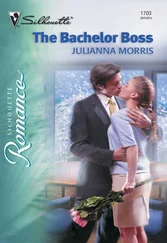R. Morris - The Cleansing Flames
Здесь есть возможность читать онлайн «R. Morris - The Cleansing Flames» весь текст электронной книги совершенно бесплатно (целиком полную версию без сокращений). В некоторых случаях можно слушать аудио, скачать через торрент в формате fb2 и присутствует краткое содержание. Год выпуска: 2011, ISBN: 2011, Издательство: Faber and Faber Fiction, Жанр: Исторический детектив, на английском языке. Описание произведения, (предисловие) а так же отзывы посетителей доступны на портале библиотеки ЛибКат.
- Название:The Cleansing Flames
- Автор:
- Издательство:Faber and Faber Fiction
- Жанр:
- Год:2011
- ISBN:0571259154
- Рейтинг книги:5 / 5. Голосов: 1
-
Избранное:Добавить в избранное
- Отзывы:
-
Ваша оценка:
- 100
- 1
- 2
- 3
- 4
- 5
The Cleansing Flames: краткое содержание, описание и аннотация
Предлагаем к чтению аннотацию, описание, краткое содержание или предисловие (зависит от того, что написал сам автор книги «The Cleansing Flames»). Если вы не нашли необходимую информацию о книге — напишите в комментариях, мы постараемся отыскать её.
The Cleansing Flames — читать онлайн бесплатно полную книгу (весь текст) целиком
Ниже представлен текст книги, разбитый по страницам. Система сохранения места последней прочитанной страницы, позволяет с удобством читать онлайн бесплатно книгу «The Cleansing Flames», без необходимости каждый раз заново искать на чём Вы остановились. Поставьте закладку, и сможете в любой момент перейти на страницу, на которой закончили чтение.
Интервал:
Закладка:
‘I would really like you to bring all of the newspapers that you have from that time.’
‘I will be happy to do so if you fill in the necessary chits.’
Porfiry placed a finger to the bridge of his nose and pressed, hard. ‘Sometimes I cannot help thinking that there must be. .’
‘What?’
‘Nothing. Never mind. I will fill in the chits. And if I do not find what I am looking for at first, I will fill in more chits.’
‘That’s the way,’ nodded the librarian.
Porfiry took a seat at the end of a long table, subdivided by low screens into separate places. Next to him, a young magistrate was snoring over an open law book. Porfiry coughed sharply. His neighbour woke with a start and applied himself with renewed vigour to the case he had been studying.
Although he would not have admitted it, Porfiry found the necessity of filling in the chits useful. It forced him to focus his mind. The letter writer had expressed the view that Porfiry would be ‘surprised’ to read a favourable account of himself in the journal in question. That suggested a radical publication, by instinct unlikely to acknowledge anything praiseworthy in the behaviour of a state prosecutor. Then again, what had impressed the writer was the humanity of Porfiry’s conduct, by which Porfiry took him to mean his compassion for the murderer. One would naturally be very surprised to find sentiments of that nature meeting with approval in any conservative paper. He had only to think of the fulminating leaders of The Russian Soil . On balance, he was inclined to start with the radical journals.
The leading radical titles at the time of the trial were The Contemporary and The Russian Word . The latter, with the emergence of the brilliant publicist Pisarev, was the more extreme of the two. Its stance was anti-state by default, leading to its enforced closure in the following year, in the aftermath of Karakozov’s attempt on the Tsar’s life. It would truly be surprising to find an article expressing approval of a government-employed magistrate in its pages.
The trial had lasted barely five days. Most of that time had been taken up in establishing the mental state of the perpetrator, and in arguments concerning sentence. His guilt had never been in question. Indeed, he had confessed to his crime. A disproportionate number of days had been consumed by the ultimately fruitless task of trying to understand why he had committed it. That was not to say that it was not a question worth asking. On the contrary, it was an essential question. It was just that Porfiry’s colleagues had not had the remotest idea of how to go about answering it. The defendant himself was little help. And so the debate had raged, an emotional whirlpool of ever-increasing exasperation and incomprehension. The more they discussed it, the less they understood it.
The Russian Word had been a monthly journal, and so Porfiry filled in three chits, one for the month before the trial, one covering the trial itself, and one to cover its conclusion and aftermath. As a precaution, he completed chits for the corresponding issues of The Contemporary .
The elderly librarian’s substantial eyebrows shot up when he saw the titles Porfiry had requested. ‘You did not tell me that you wished to consult these particular papers.’ The habitual dourness of his expression sharpened into horror.
‘You did not ask me. Is there some problem?’
‘Wait there.’
The librarian moved with a sprightliness that belied his evident age, and which Porfiry could only envy, to disappear through a door at the rear of the library.
A moment later he re-emerged, followed by what could only be described as a younger version of himself. The side whiskers had not yet turned silver but the eyebrows were well on their way to achieving a beetling prominence. More importantly, the gaze was equally discouraging.
It must have been a disconcerting experience for both parties to work together: one man confronted daily by the image of his future, the other by that of his past.
‘You are aware,’ began the younger librarian, who was evidently more senior in rank, ‘that one of the titles you have requested is a restricted publication.’
‘I was not aware of that. I was not even aware that there is a list of restricted publications.’
‘That is hardly surprising. The list itself is restricted.’
‘Ah, I see. I take it you are talking about The Russian Word ?’
‘Yes. There will be no difficulty with your seeing The Contemporary .’
‘However, it was The Russian Word that I was particularly desirous of seeing.’
‘That will not be possible.’
‘But you don’t understand, I am an investigating magistrate pursuing a murder enquiry. I believe there may be vital information in the issues of The Russian Word from that period.’
‘Timofei Ivanovich will be happy to retrieve the copies of The Contemporary that you have requested from the stacks, if you will return to your place.’
‘Yes, of course. That is indeed considerate of him, as I do not believe the journals in question will be able to walk to my place on their own.’ The barb failed to dent either librarian’s stony mask, and Porfiry immediately regretted it. Sarcasm was not the way to win these people over. ‘It is true that I do want to look at The Contemporary , but I also want to look at The Russian Word . In fact, I particularly want to. You do understand, don’t you? I want to consult both titles. There must be some way for me to see The Russian Word ?’
‘There is only one way,’ said the younger librarian, but not in a way that encouraged hope.
‘Yes?’
‘But that would mean filling in a different chit.’ This was given as an insurmountable obstacle.
‘Of course! Whatever is necessary!’
‘Which you must then have signed by the head of the Third Section, Count Shuvalov himself.’
Porfiry was momentarily speechless. When he found his voice, all he could say was, ‘Count Shuvalov? Are you sure?’
The two heads of elder and younger librarian nodded in unison.
‘Must we trouble Count Shuvalov with a trivial request for a couple of old journals?’
‘The request is not trivial. It is a restricted publication. If it falls into the wrong hands, who knows what incendiarism it might provoke.’
‘I am a government employee! In fact, an employee of the Ministry of Justice. I require the copies in connection with work I am conducting on behalf of the Ministry.’ Porfiry held up his hands. ‘Surely these are not the wrong hands?’
‘We must believe that it has been restricted for good reason.’
‘Ah, but you see, at the time, back in 1866, it was not restricted. Anyone could read it! Indeed there must be many copies of this very issue in open circulation, thousands even, gathering dust on the shelves of respectable professional gentlemen.’
‘Shall I tell Timofei Ivanovich to fetch the copies of The Contemporary ?’ There was something new to the younger librarian’s tone as he asked this. Porfiry was alert to the nuance and so he nodded assent.
They both watched the older man on his way. When the door had closed behind him, Porfiry looked over his own shoulder before taking out his wallet. ‘How much?’
‘I shall have to give Timofei Ivanovich something.’
Porfiry peeled off a red ten-rouble bank note.
The librarian’s twitching fingers induced a second. Then he snatched the notes away with the alacrity of a hungry peasant.
The Russian Word
This young man is himself the victim here, driven to a crime that he is at a loss to explain, by the twin evils of poverty and sickness. He deserves not our opprobrium, but rather our pity. Who is really responsible for the deaths of the rapacious pawnbroker Alyona Ivanovna Kamenya and her unfortunate half-sister Lizaveta? It is not Rodion Romanovich Raskolnikov, though he wielded the implement that took away their lives. His sickness was to blame. We must allow that he did not choose to be sick. Even his prosecutors will not make that claim. His sickness without doubt derived from the dire exigencies of the life he was forced to lead through poverty. Expelled from the university, bankrupt of funds, delirious from starvation, it is little wonder that he found himself acting in a manner over which he had no control. And so, to answer the question, ‘Who is responsible for the deaths of Alyona Ivanovna and Lizaveta Ivanovna?’, we must ask, ‘Who is responsible for Rodion Romanovich’s poverty?’ Every man and woman of conscience will know in their hearts the answer to that question. For who is responsible for the poverty of many millions of Russians? Again, it does not need this writer to supply an answer.
Читать дальшеИнтервал:
Закладка:
Похожие книги на «The Cleansing Flames»
Представляем Вашему вниманию похожие книги на «The Cleansing Flames» списком для выбора. Мы отобрали схожую по названию и смыслу литературу в надежде предоставить читателям больше вариантов отыскать новые, интересные, ещё непрочитанные произведения.
Обсуждение, отзывы о книге «The Cleansing Flames» и просто собственные мнения читателей. Оставьте ваши комментарии, напишите, что Вы думаете о произведении, его смысле или главных героях. Укажите что конкретно понравилось, а что нет, и почему Вы так считаете.












